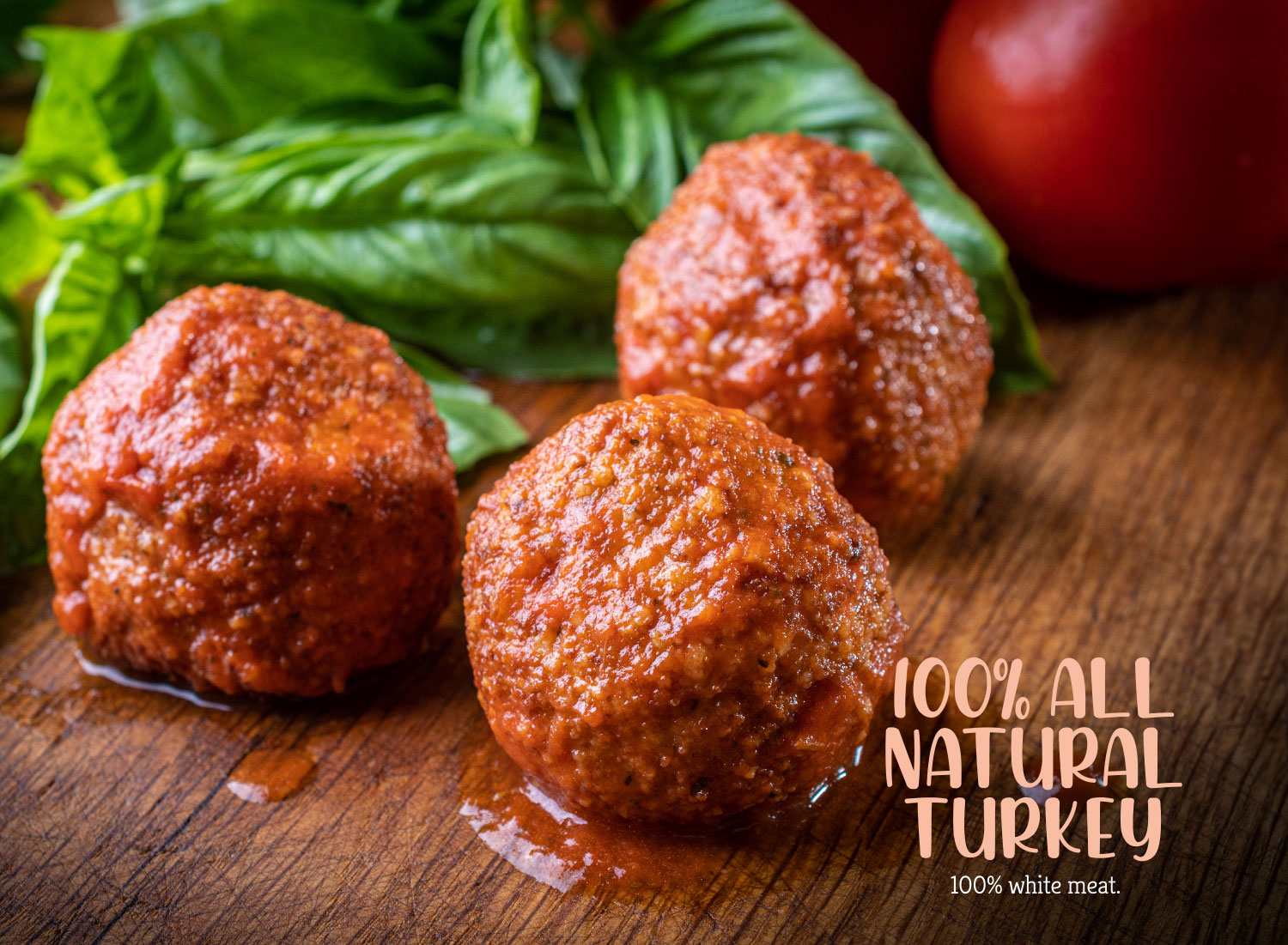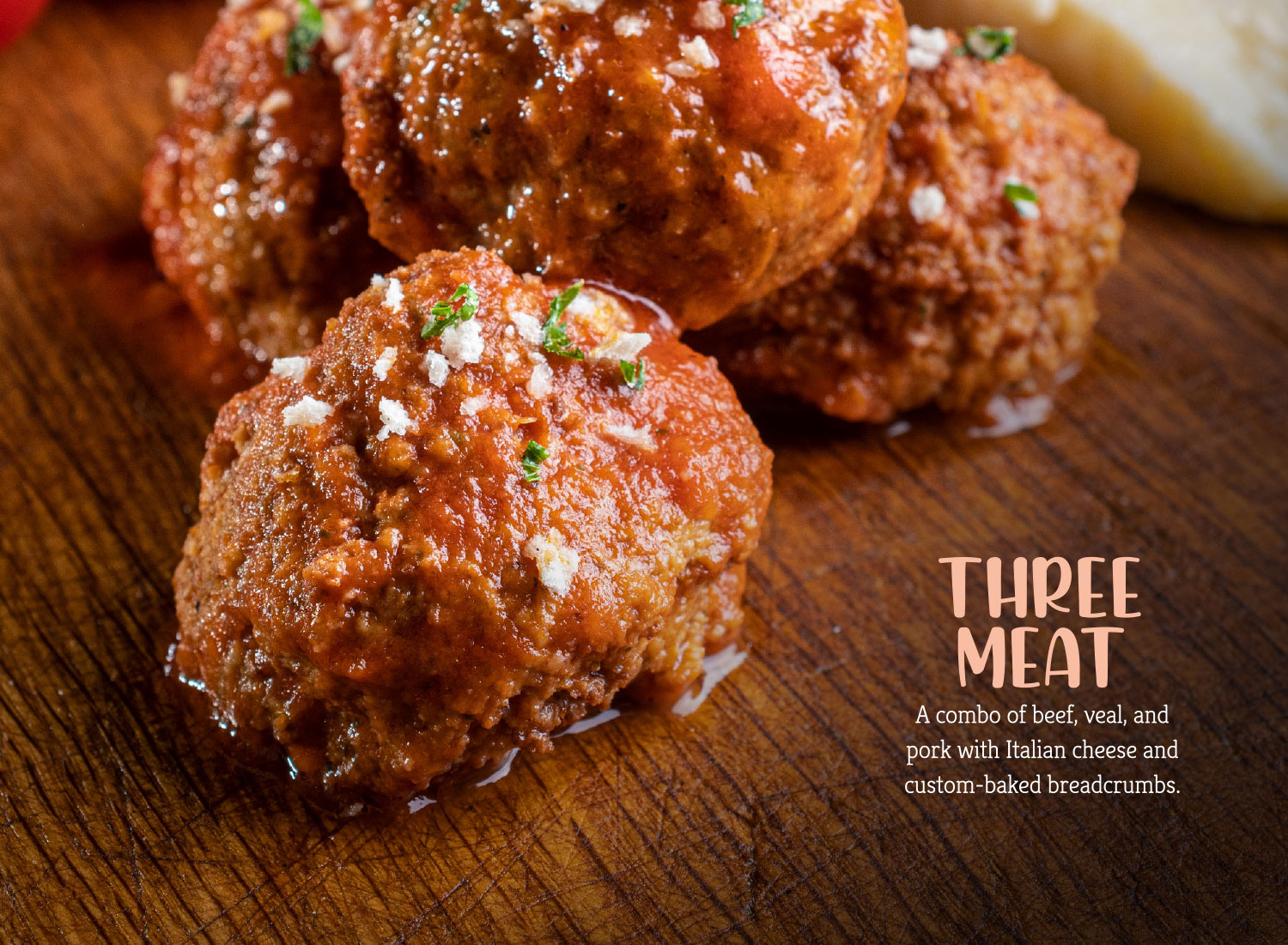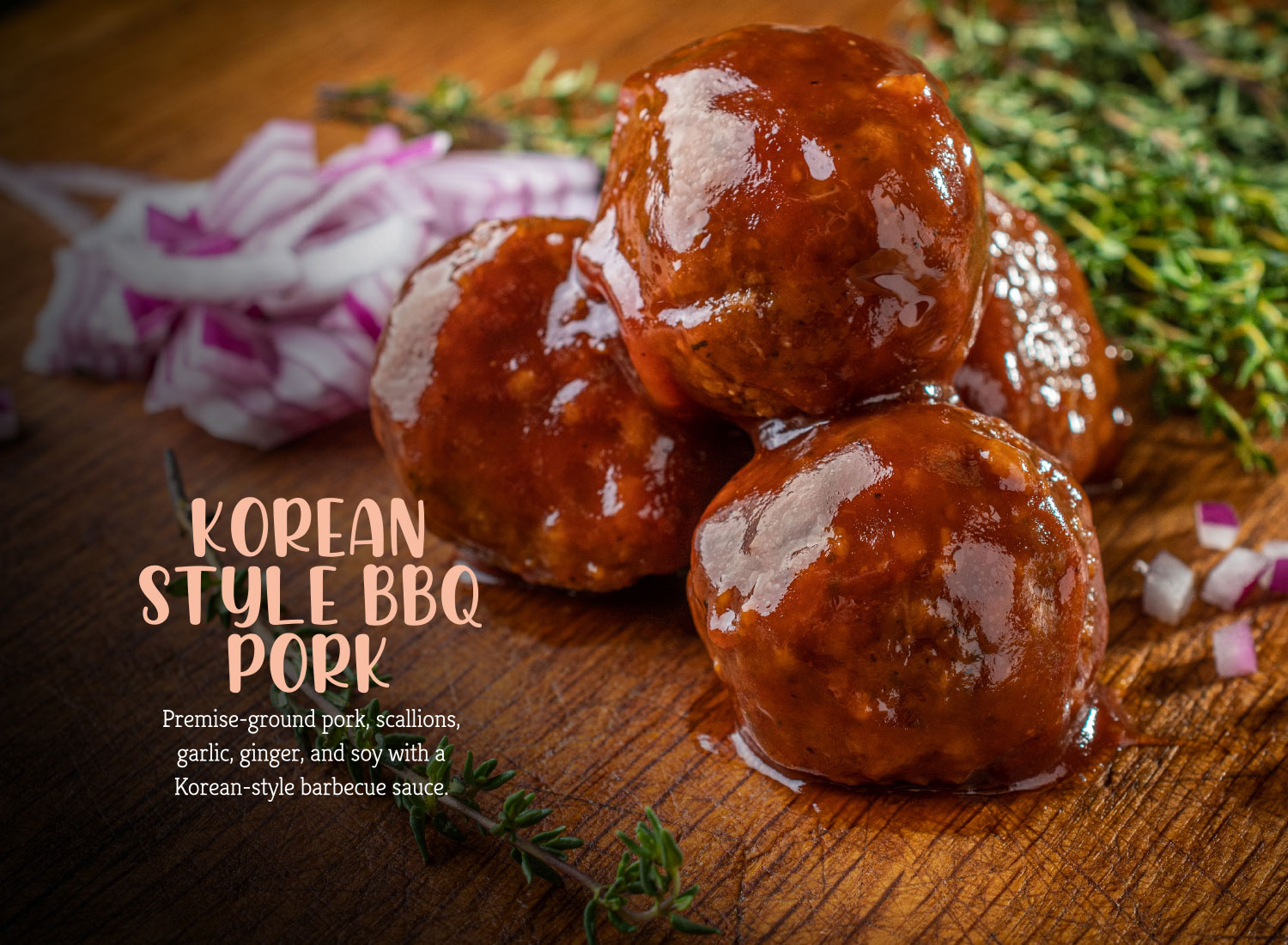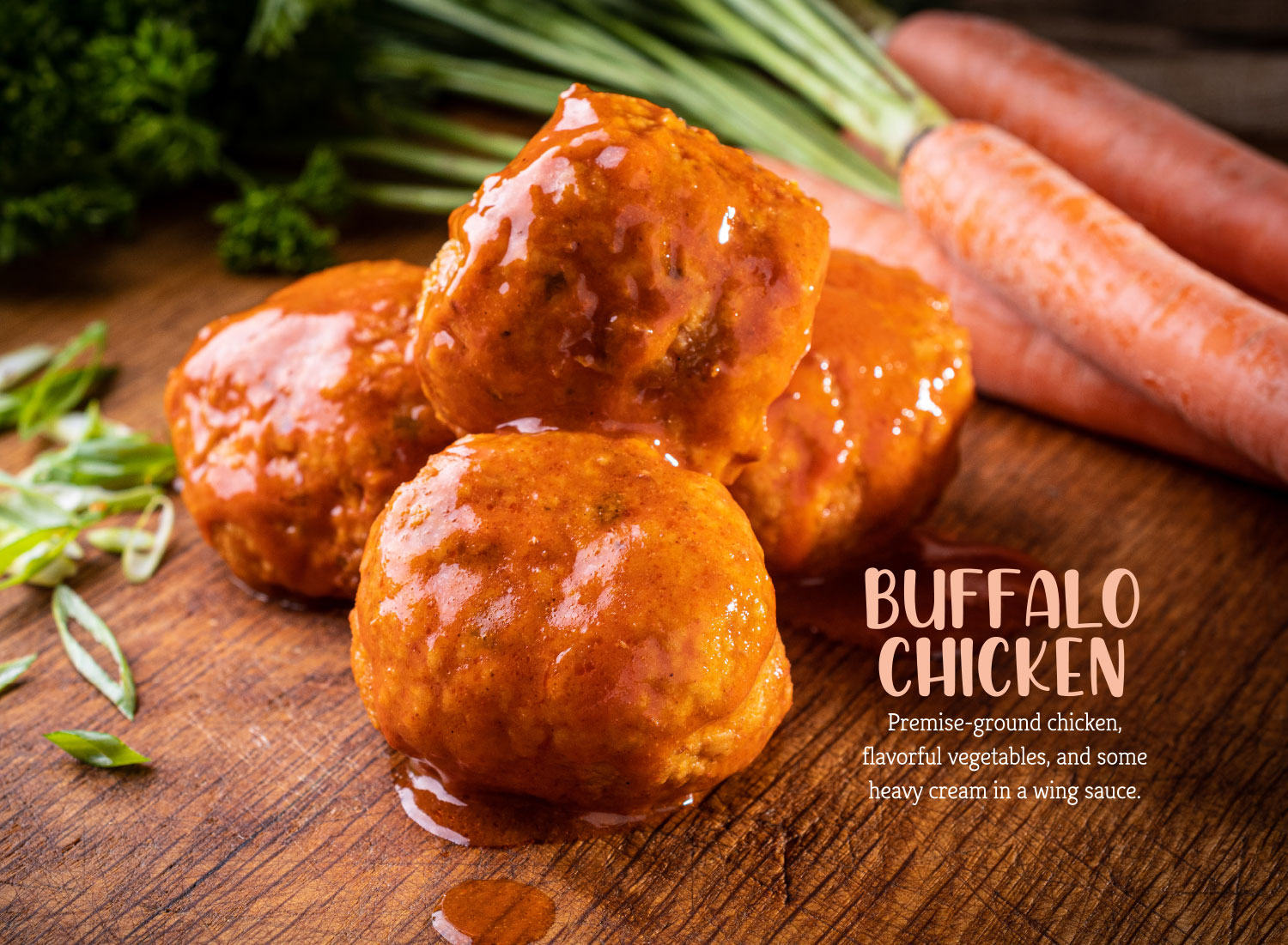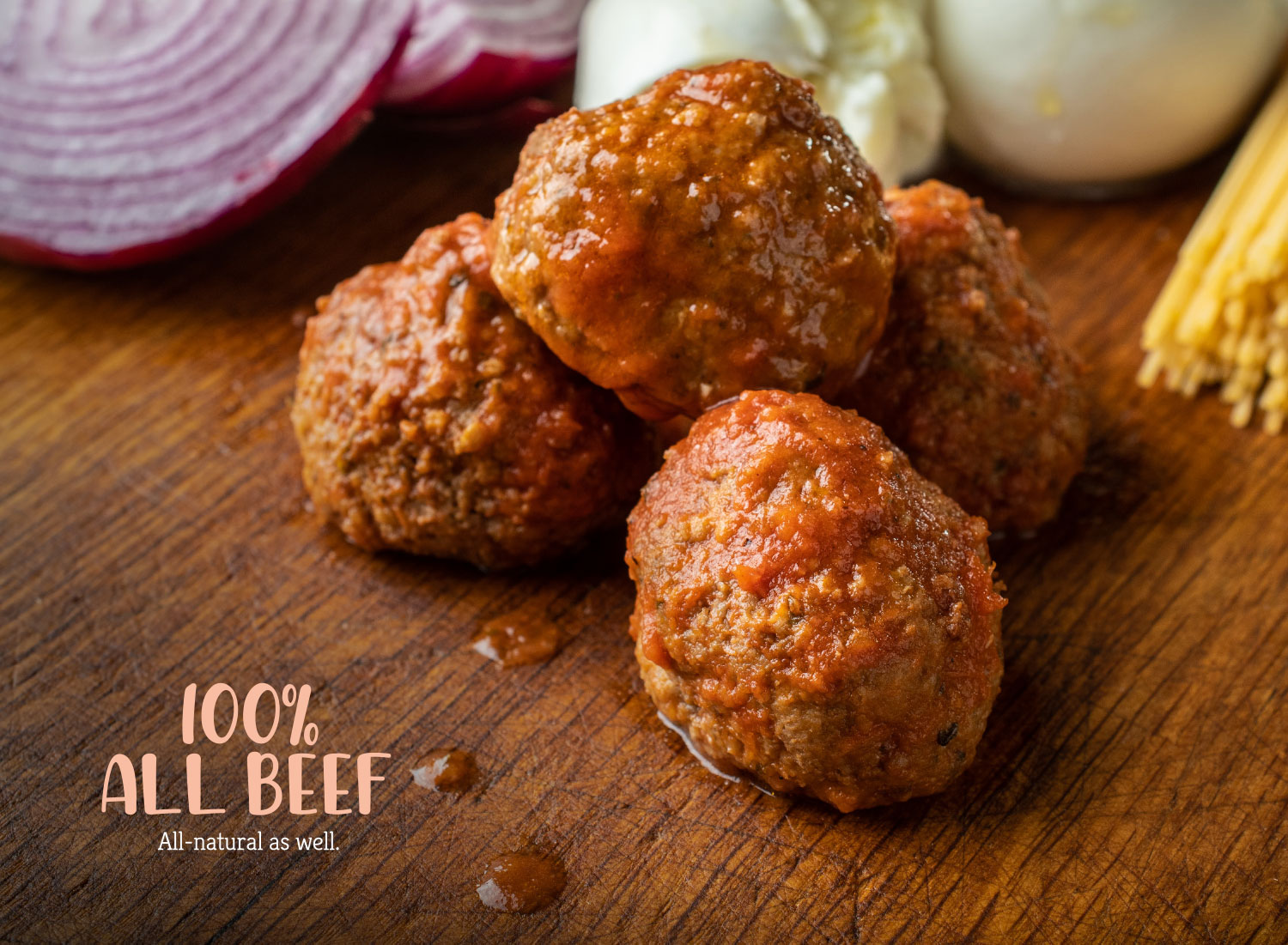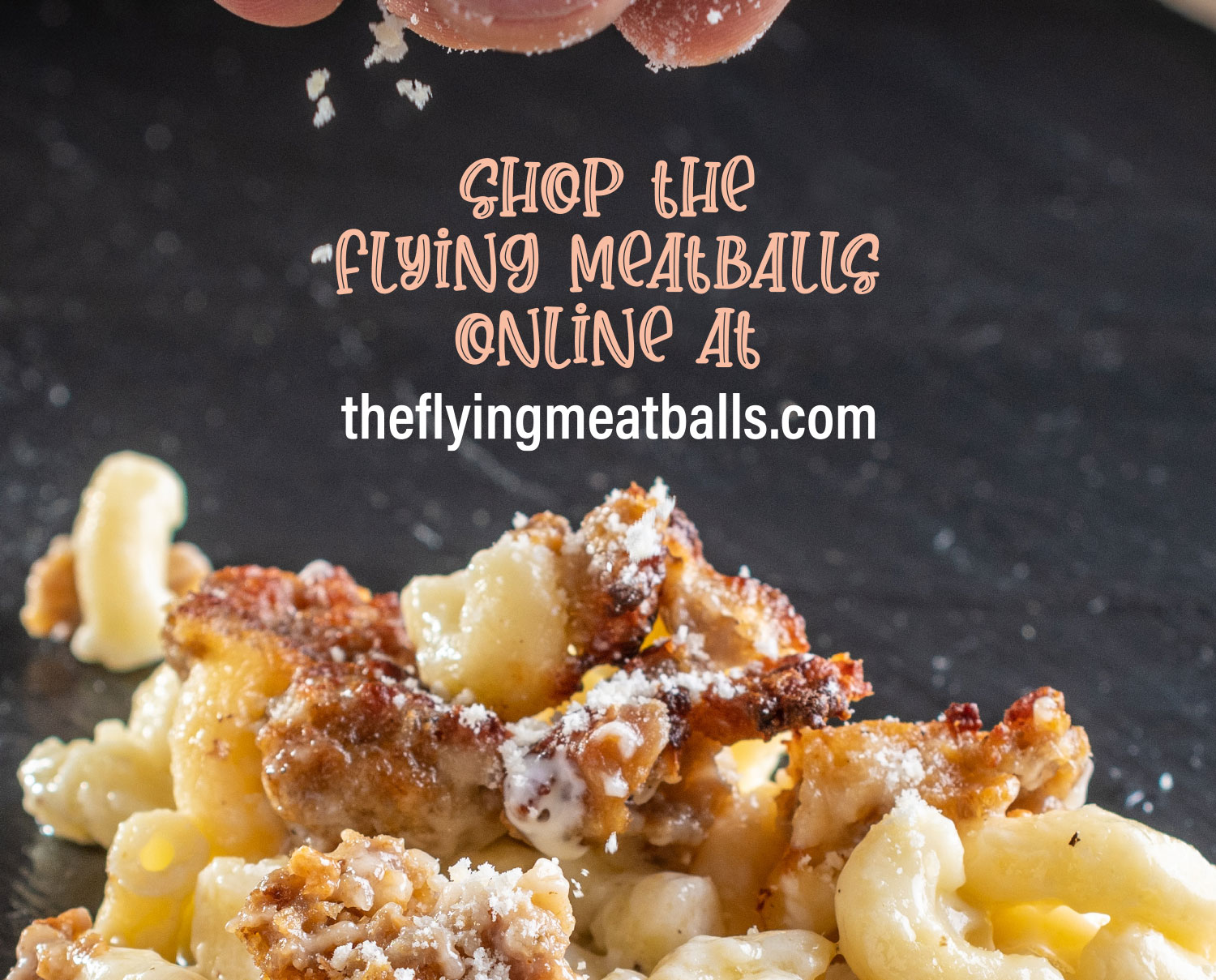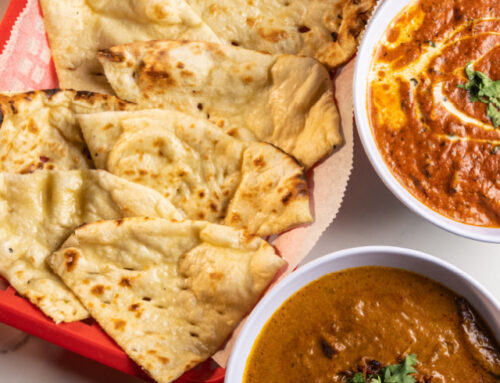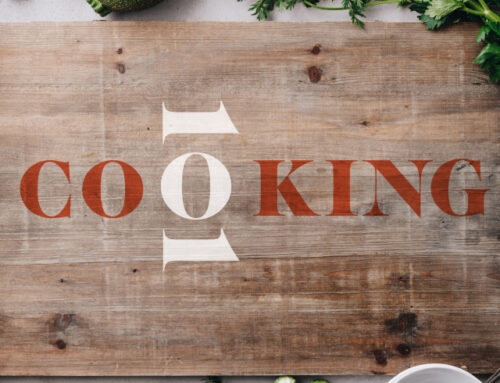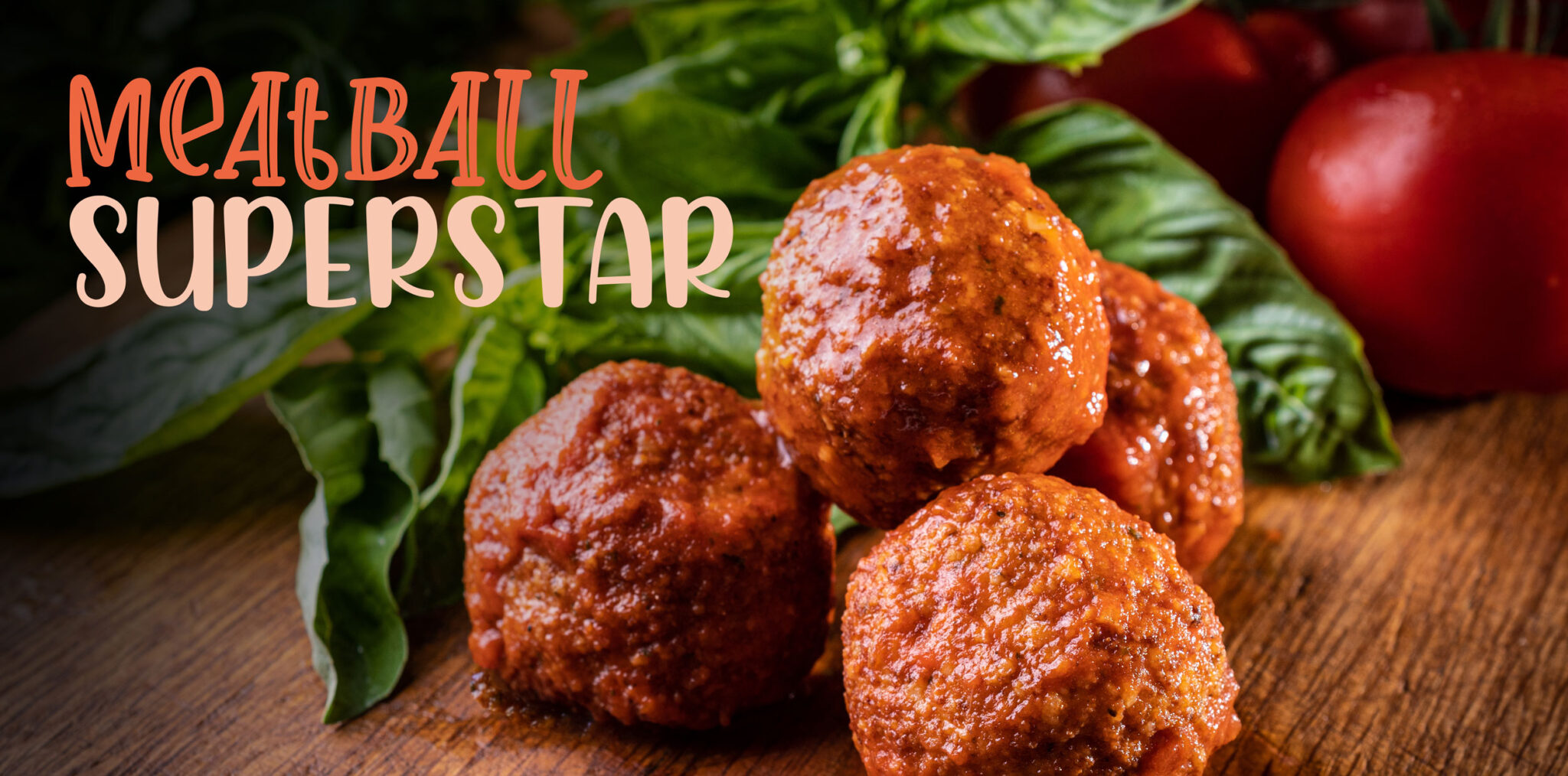
By Fred Jerant

FROM CONSTRUCTION MANAGEMENT TO CONSTRUCTING MEATBALLS: THE STORY OF NATALE GRANDE
Everybody loves meatballs.
You find them tossed over pasta, crammed into sandwich rolls, simmering in soup, served as entrées and appetizers, stuffed with various meats and cheeses, and made of everything from the typical ground beef to reindeer meat (in Finland, where they’re known as lihapullat).
And they’ve made Natale (“na-TALL”) Grande, owner of The Flying Meatballs®, into a culinary superstar. His succulent locally made goodies are available in several chain grocery stores and fine-food purveyors and have even been supplied to Emeril Lagasse, Omaha Steaks, and Amtrak.
Natale grew up in the food business. As a child and teen, he spent plenty of time at his father Antonio’s (“Tony”) fine-dining establishment, Il Capriccio in Whippany, NJ. (At one time, Gourmet magazine listed it as one of the top 10 Italian restaurants in the country.)
Watching, working, and learning
“I remember being quite young and sitting on a butcher block as I watched my dad work,” he recalled. “When I was about 13, I started working in his kitchen, washing dishes and preparing coffee. Over time, I progressed through the salad, pasta, and other stations. I worked there every weekend through high school and even came home to work on Saturdays during my three semesters at Muhlenberg College.”
Natale later graduated from the University of Florida with a degree in construction management and worked a brief time for Turner Construction Company, a multi-billion-dollar construction management company headquartered in New York City.
His life took a sharp turn in early 2000 when Tony announced his plans to retire. “I couldn’t allow him to give up his life’s work,” Natale recalled, “so I came back and joined the restaurant full-time.”
But rather than simply marching in and taking over, he worked through one station after another, formally learning Il Capriccio’s recipes, techniques, and procedures. “Being the boss’s son is more of a burden than a benefit,” he said. “I had to prove myself to him and to the crew because I’d soon be telling people twice my age how to do things.”
Natale took over as executive chef in mid-2000. Seven years later, his mother Clara launched La Famiglia, a gourmet Italian grocery store that offered traditional prepared foods as well.
“What will people like?”
That was essentially ground zero for The Flying Meatballs. “Mom asked for a dish that people would like, so I took my nonna’s meatball recipe and tweaked it a bit,” he said. “At first, we sold 30 pounds of meatballs a week then 100 pounds and then 300 pounds. People loved them!
“We labeled them as The Flying Meatballs after my mom remarked that they just went ‘flying’ off her shelves. The name just resonated with me. After 18 months of working with a trademark attorney, we finally locked the name down; it’s officially a registered trademark,” he said.
And when a friend joked that he should start selling them online, a light went on.
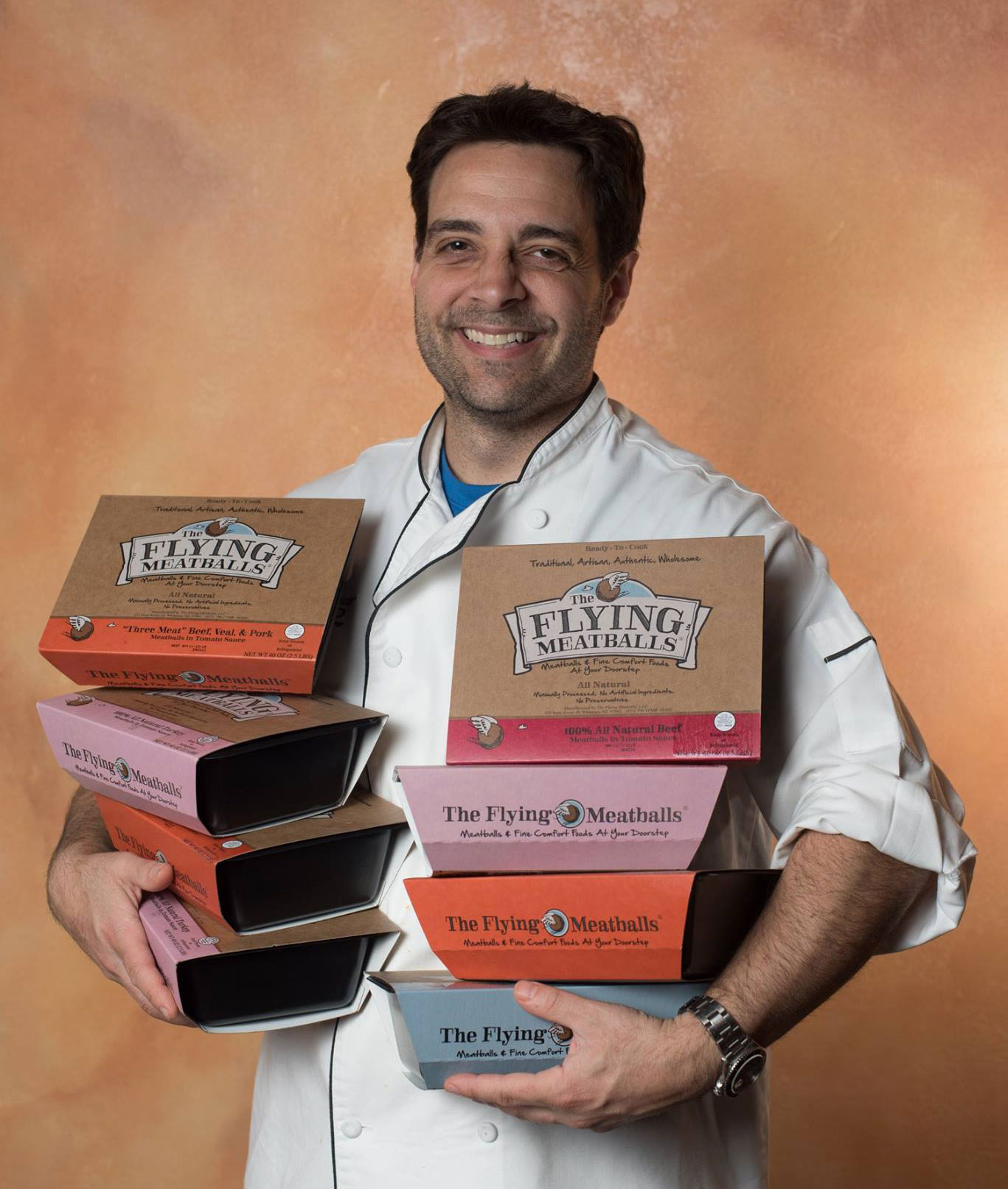
Learning the ropes
Natale enrolled with Rutgers University’s Food Innovation Center, a Princeton-based facility where he learned the basic ins and outs of the food manufacturing business. “I was in the program for nearly two years. It was sort of like going to college again,” he said.
The Rutgers center also provided on-site manufacturing capabilities, and his Flying Meatballs soon began appearing in local Kings and Fairway supermarkets.
Then a big opportunity knocked.
“One of my friends, a sales rep for a major foodservice company, pitched our meatballs to his contact at Amtrak, and that company came on board as a customer,” Natale said.
To accommodate the demand, Natale moved his operation to a USDA-certified facility in Edison, NJ and also began providing his products to upscale food purveyors Goldbelly, Mackenzie Ltd., and others.
The Flying Meatballs’ production continued to expand and is now located in Easton. The factory can produce between 12,000-18,000 meatballs per hour and processes about 100,000 pounds of food annually—a far cry from 30 pounds per week at La Famiglia!
Natale explained that the basic Flying Meatballs concept is “nana’s rustic kitchen meets fine dining. I tweaked my grandmother’s meatball recipe; we sell my mom’s version of mac’n’cheese; and our eggplant parm is based on what we serve at Il Capriccio.”
Only the best will do
Good food starts with high-quality ingredients, and The Flying Meatballs are no different. “We use no fillers or meat trimmings,” Natale explained. “We buy whole-muscle meats and then grind and blend them to our specs. Our bread crumbs are custom-made, and our cheeses are imported Pecorino Romano and Grana Padano from Italy. I’d say about 99% of our ingredients are US-sourced.”
In addition to its famous meatballs, the company has added comfort foods—macaroni and cheese, upscale chicken nuggets, sausage and peppers, and the like—to its repertoire. “We’re also looking into ‘ballifying’ some conventional entrées,” he said. Imagine meatballs with all the flavors of chicken Marsala, or beef with pizzaiola sauce!
Over the years, the company’s client list has included supermarket chains, foodservice operations, specialty food houses—and celebrity chef Emeril Lagasse.
“It was kind of intimidating to have him visit our factory,” Natale said, “but he was impressed with our products and our procedures. We ended up producing eight SKUs [stock-keeping units] for his brand—and they sold out three times on QVC!”
Not mom’s meatballs, but close
“Everybody has a favorite meatball recipe, and that’s the one that always stays in their hearts. But we want The Flying Meatballs to be their go-to if they lack the time or skills to cook that dish. That’s why we offer convenient, high quality food—made with ingredients you recognize—at a very good price,” he said.
And while meatballs are his bread-and-butter (so to speak), Natale’s product offerings continue to expand. “We have an array of frozen plated meals that are skin-packed to eliminate freezer burn,” he said, explaining that the protective film actually shrinks to conform to the foods’ shapes, rather than simply covering the plates edge-to-edge.
Although he’s the head of a multi-million-dollar operation, Natale doesn’t shy away
from “dirty hands” work. “Depending on the situation, I will function as the owner, janitor, maintenance man, logistics coordinator, warehouse manager, estimator, and ‘mad food scientist.’ I also do some second-shift work at Il Capriccio,” he said. “In the food business, you dedicate your capital to where it counts; the more you do yourself, the more you save.”
He’s quick to praise The Flying Meatballs staff, too. “There are about 30 people in the company,” he said, “and all but five are production workers. If you compare our business to an airplane, they are the flight crew. I count on them to keep our plane flying and on-course.”
Natale added that his production staff isn’t a crew of button-pushers; they understand how the equipment works and how each piece fits into the overall operation. “I want them to feel like chefs, and be proud of the work they do. When your heart is tied to your work, it can almost be an art form.”
He’s not content to sit back and just let the meatballs roll, either. In addition to the expanding product lines mentioned earlier, Natale hopes eventually to have food
trucks to bring his food to the street and to supply stadiums, concessions, and other major sales venues.
“We love making this food and want people to be happy when they eat it,” he said.
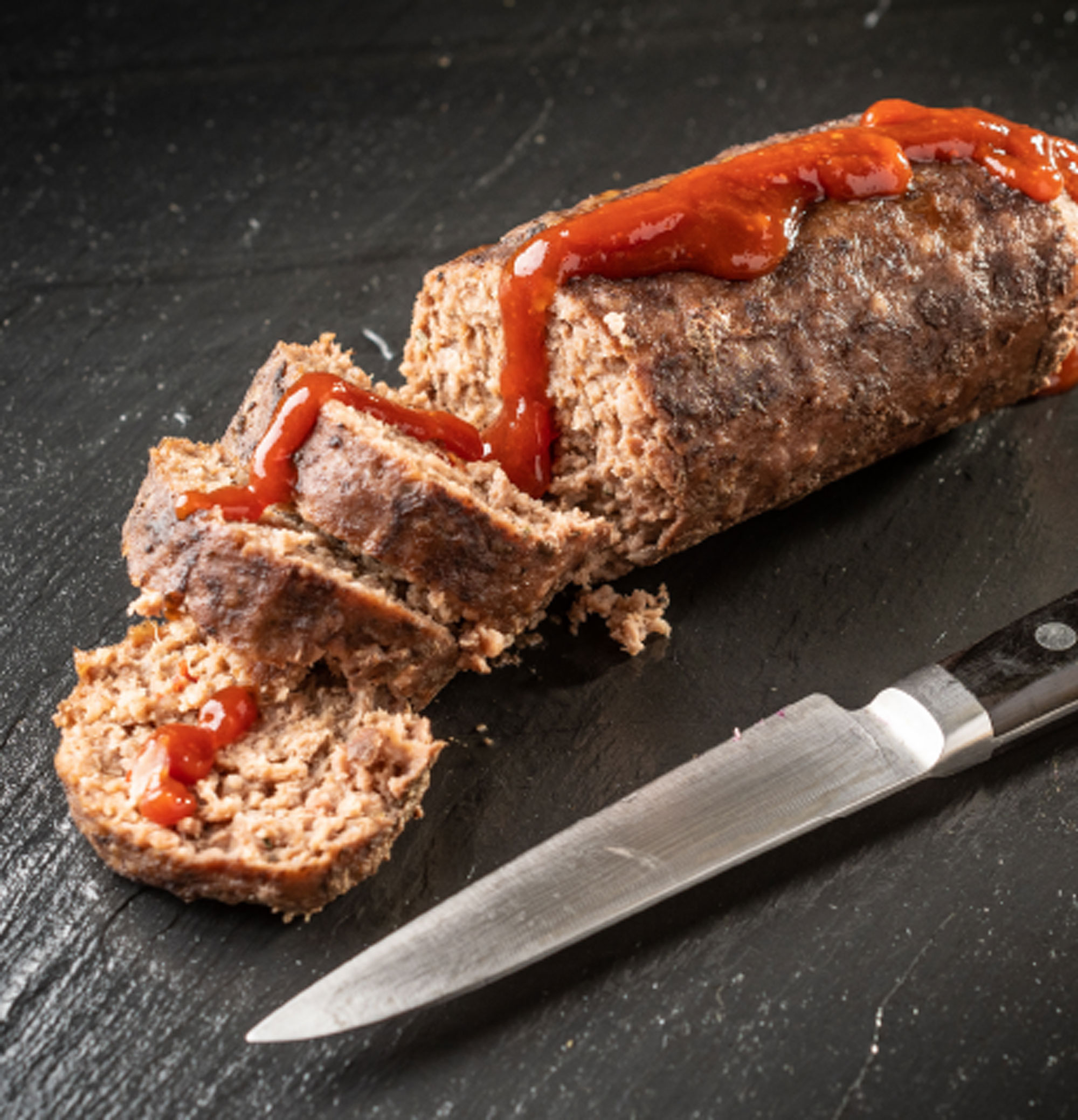
As seen in the Winter/Spring 2021 Issue
Click to Visit Our Advertisers


